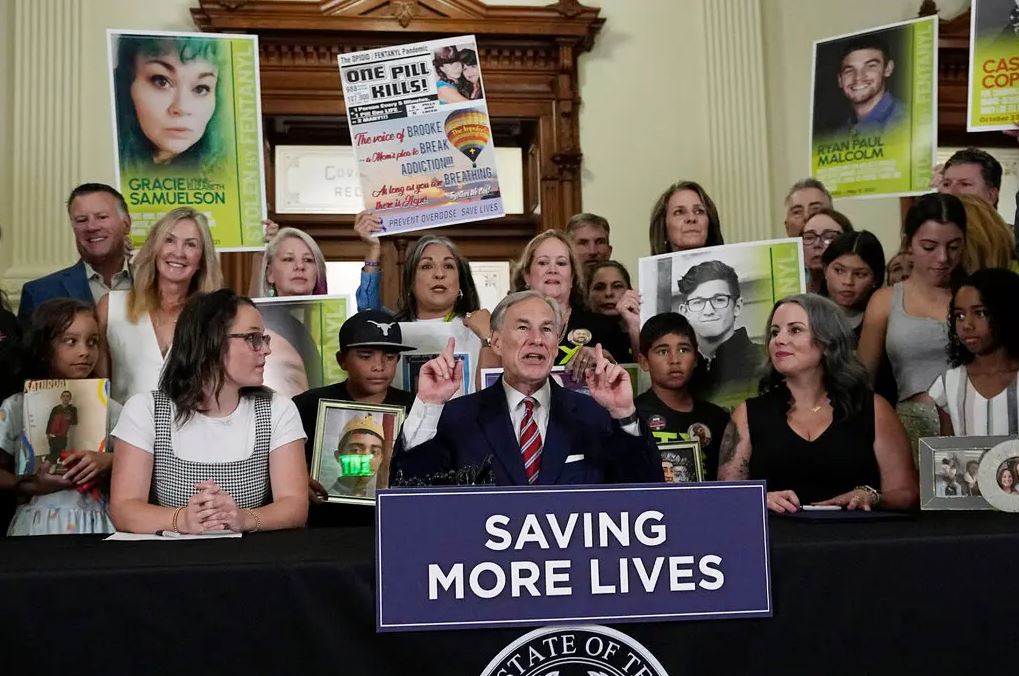In a tragic incident in rural Tennessee, three teenage girls were discovered in a car, slumped over, shortly before their high school graduation. Two of them had succumbed to fentanyl overdoses, while the third was hospitalized in critical condition. Shockingly, the surviving 17-year-old was later charged with the murders of her friends, under a Tennessee law that allows homicide charges to be filed against individuals who provide fentanyl to someone who dies from it. This case reflects a growing trend across the United States, with numerous states enacting legislation to impose severe penalties for fentanyl-related offenses. However, the efficacy and fairness of these tough measures in addressing the public health crisis of opioid addiction are being questioned by experts.
The Rise of Fentanyl Crime Bills:
During the 2023 legislative session, approximately 46 states introduced hundreds of fentanyl crime bills, with the aim of combating the deadly drug that has infiltrated the illicit drug supply chain. These bills vary from state to state, with some classifying fentanyl as a “weapon of terrorism” or imposing strict penalties for small amounts of the drug. Notably, drug-induced homicide statutes have been enacted in over 30 states, allowing murder charges even for individuals who share drugs containing lethal doses of fentanyl in social settings.
Debate over Law Enforcement’s Effectiveness and Equity:
While the bills intend to address the fentanyl crisis, they have sparked a debate about whether punitive law enforcement measures can effectively and equitably tackle a public health issue. In recent years, the approach to drug addiction has shifted towards allocating more resources for treatment, prevention, and harm reduction. The Biden administration has embraced harm reduction strategies, such as making overdose reversal medication, Narcan, available over the counter. However, public health experts argue that the new fentanyl laws resemble the punitive sentencing of the war on drugs era, raising concerns about potential racial disparities and the incarceration of low-level dealers.
Disproportionate Impact and Racial Disparities:
Data from the U.S. Sentencing Commission reveals that, on average, federal trafficking prison sentences for fentanyl-related substances last year were approximately six and a half years. Shockingly, 56 percent of those convicted were Black, 25 percent Hispanic, and 17 percent white. Critics, including Senator Cory Booker, warn that such disparities are likely to worsen, citing a recently passed federal fentanyl crime bill that garnered bipartisan support in the House of Representatives.
Fentanyl: A Lethal Substance:
Fentanyl, an incredibly potent synthetic opioid that is 50 times stronger than heroin, was responsible for over two-thirds of the nearly 110,000 overdose deaths in the United States in the previous year. While small, regulated doses can be legally prescribed for severe pain, illicit versions have flooded the market in recent years. Fentanyl is frequently mixed into counterfeit prescription pills and other street drugs, often without the knowledge of the individuals taking them.
Bipartisan Support and Familial Advocacy:
Surprisingly, many of the fentanyl crime laws have garnered bipartisan support, perhaps due to public endorsement from families who have tragically lost children to the drug. These grieving families often stand alongside governors during bill-signing ceremonies. The increasing number of fentanyl-related overdoses in communities has compelled lawmakers to take action, leading to the passage of stricter legislation.
Criticism of Fentanyl Crime Laws:
Critics argue that these laws conflict with the principles of Good Samaritan laws, which typically provide immunity from prosecution to drug users who seek medical help for overdosing companions. Fearing murder charges, individuals may hesitate to call emergency services during an overdose. Furthermore, mandatory minimum sentences attached to fentanyl offenses often disregard crucial contextual factors, such as addiction or coercion.
The Limitations of Stringent Laws:
While the intent behind these fentanyl laws is commendable, many drug crime experts argue that they fail to address the primary sources of the drug supply. Illicit synthetic drugs, often ordered online and processed in Mexico with chemicals from China and India, continue to fuel the crisis. Experts suggest that a comprehensive approach is necessary, focusing on disrupting the supply chain, while simultaneously investing in treatment, prevention, and harm reduction strategies.

